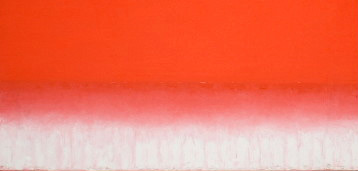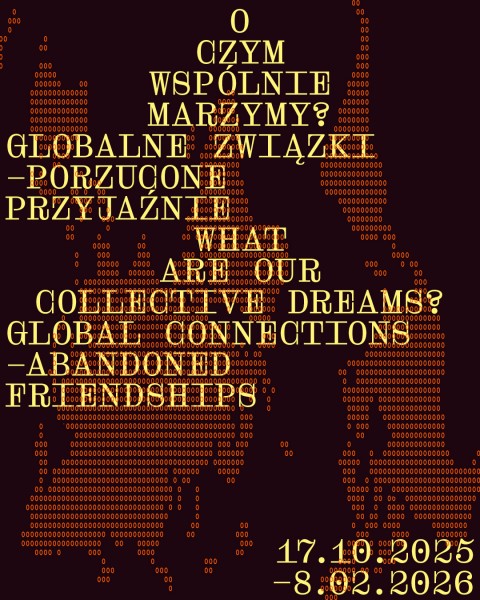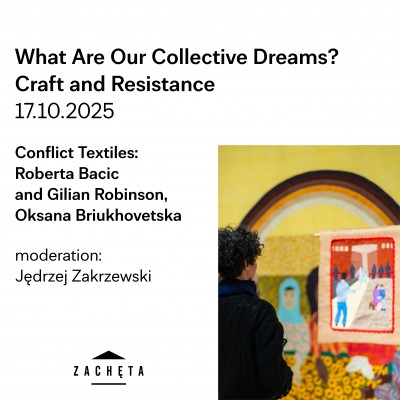Craft and Resistance | Discussion in English
O czym wspólnie marzymy? | Weekend otwarcia
Zachęta | wejście od ul. Burschego (schodami w dół)
wstęp wolny
Event in english
Craft and Resistance, a conversation between Ukrainian artist Oksana Briukhovetska, Roberta Bacic, curator of Conflict Textiles (Ulster University, Belfast), and Professor Gillian Robinson (Ulster University, Belfast)
moderation: Jędrzej Zakrzewski
Although textile may seem like a ‘gentle’ medium traditionally associated with domestic crafts, it has enormous critical and subversive potential, especially when used consciously to comment on social, political or historical issues.
Women's work, identified with the sphere of home, care and nurturing, is symbolically associated with crafts, most often needlework, quilting and weaving. In this context, we find both historical examples of subversive stitches, a collection of Chilean apilleras from Conflict Textiles, and the works of contemporary artists. The themes of human rights, ecology, social equality and feminism will be the basic topics for discussion on the strategy of creating socially engaged artistic textiles.
Oksana Briukhovetska is an artist, curator, art writer, graphic designer, and activist. She graduated from the National Academy of Visual Arts and Architecture in Kyiv. She is a cocreator and curator at the Visual Culture Research Center in Kyiv where, she focused on feminist attitudes in Ukrainian art. She explores social themes through the study of personal experience focusing on topics of memory, and social and gender trauma. In her work, she also addresses the issues of labor migration, motherhood and feminism, social activism through drawing, textile, installation and interventions in public spaces, and also theoretical texts and curatorial projects.
Conflict Textiles is home to a large collection of international textiles, exhibitions and associated events, all of which focus on elements of conflict and human rights abuses. Conflict Textiles is an ‘Associated Site’ of Conflict Archive at Ulster University, Northern Ireland. The collection consists of apilleras, Chilean textile collagues.
Roberta Bacic human rights activist and researcher. Born in Chile and resident of Northern Ireland. Graduating philosophy and English teaching she focuses on researching fields linked with human rights, environmental destruction, and collective responses. Bacic is the founder of Conflict Textiles.
Gillian Robinson is Professor Emeritus of Social Research and Research Director of ARK at Ulster University. Recently Gillian co-ordinated the Accounts of the Conflict project, a digital archive of personal accounts of the conflict in and about Northern Ireland. Her research interests include peace monitoring, social attitudes, gender roles, policy development in transition and research methodology including issues around researching violent societies and comparative methods.
The meeting will be moderated by Jędrzej Zakrzewski, art historian. A graduate of the Academy of Fine Arts in Warsaw. Since 2023, he has been associated with Zachęta – National Gallery of Art. Previously, he collaborated with institutions and foundations on projects related to local craft and design history in the context of the political specificity of Eastern Europe. In his work, he focuses on the history of textiles in a social, emancipatory and identity context.
W trakcie planowania wizyty w Zachęcie prosimy o zapoznanie się z opisem dostępności: www.zacheta.art.pl/wizyta/dostepnosc.
Zachęcamy do zgłaszania swoich potrzeb minimum trzy dni przed danym wydarzeniem do koordynatorki dostępności: dostepnosc@zacheta.art.pl; tel. 887 036 195 (możliwość kontaktu SMS oraz poprzez wideorozmowę w PJM).
-
17.10.2025 – 08.02.2026O czym wspólnie marzymy?Globalne związki — porzucone przyjaźnie
Wystawa otwiera archiwa Zachęty, by na nowo przyjrzeć się sieciom globalnych relacji artystycznych w czasach PRL. Współcześni artyści i artystki konfrontują te historie z teraźniejszością pytając, co zostało z „internacjonalistycznych przyjaźni” sprzed 1989 i jak mogą one kształtować nasze wyobrażenia wspólnej przeszłości.
Zachęta – Narodowa Galeria SztukiZachęta


